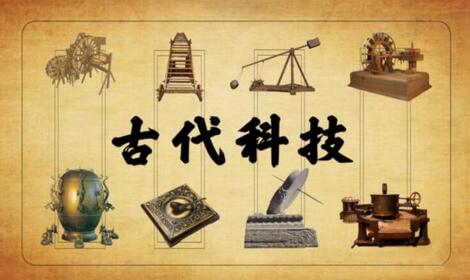日本的未来会是怎样?我是日本人,但我很担心。日本人的工资已经30年没有增长了(一)
正文翻译

日本的未来会是怎样的?我是日本人,我很担心日本的未来,日本人的工资已经30年没有增长了。

日本的未来会是怎样的?我是日本人,我很担心日本的未来,日本人的工资已经30年没有增长了。
评论翻译
Hello there.
I am Japanese with 1/4 Chinese blood. My grandfather moved to Japan when he was still in his teens.
Since then, my family lived here in Japan. Thus, I was born in Japan.
I went to an international school, but worked in Japan and has seen these 30 years. I started working about 30 years ago.
Some are too optimistic and some are too pessimistic about the situation we now face in Japan.
It’s not a matter of being left or right.
I think we stand 50/50 chance here.
The key points in our survival are:
Stop the lifetime employment system
Stop educating children to believe that to work in only one company for a life is good
大家好。
我是日本人,有1/4的中国血统。我的祖父在他十几岁的时候就搬到了日本。
从那时起,我的家人就住在日本。因此,我出生在日本。
我上的是国际学校,但在日本工作,目睹了这30年了。我大约在30年前开始工作。
对于现在日本面临的情况,有些人过于乐观,有些人过于悲观。
这不是一个非此即彼的问题。
我认为我们还有一半对一半的机会。
我们要生存下去的关键点是:
停止终身雇佣制度
不要再告诉孩子们一生要只在一家公司工作。
Educate children not English language, but the logical thinking: Japanese logic is not really a logic, but most of the time SONTAKU (the internet translates this word as “conjecture,” but I do not think it’s accurate. It’s more like deciding/acting in favor of someone without confirming with that someone.)
Stop uating employees by the number of years they have worked for a company.
I can go on forever. LOL.
We have good people.
Accurate and always giving attention to details. (Probably not everyone and unfortunately decreasing these days, so we have to stop this now.)
But our leaders are disaster.
Yes, they have finally decided to raise wages, but they have waited for 30 years!
And our current government has worked in favor of these lazy and ignorant leaders.
I am hoping the tide has turned…
重要的不是去教孩子们英语,而是逻辑思维。日本逻辑并不是真正的逻辑,而往往只是SONTAKU(网上把这个词翻译成 "猜想",但我认为这并不准确。它更像是在没有与某人确认的情况下就决定/采取有利于该人的行动)。
停止以员工在公司工作的年限来评估他们。
我可以一直说下去。大笑。
我们有多人才。
日本人准确无误,总是关注细节。(可能不是每个人,而且不幸的是,这种人如今正在减少,所以我们现在必须阻止这种趋势。)
但我们的领导人很差经。
是的,他们终于决定提高工资了,但是已经过了30年了!
而我们目前的政府一直在为这些懒惰和无知的领导人服务。
我希望潮水已经开始转向...
评论:
Sontaku (忖度) can be translated as "surmising the feelings of others" or "acting upon the implicit desires of another person."
From a modern perspective it is akin to servility. And a brake on the agility and adaptativeness necessary for a society to flourish.
忖度(Sontaku)可被翻译为 "猜测他人的感受 "或 "根据他人的隐含欲望行事"。
从现代的角度来看,它类似于奴性。也是对社会繁荣所需的灵活性和适应性的一种阻力。
Thanks for the explanation.
谢谢你的解释。
Sontake sounds like to me like what Western politicians often do: Claim that this is what the people want…. when that is not at all clear. It’s more what the politician wants but he cannot say so. It is, I think, a way for politicians to push through what they want while retaining the right to absolve themselves if things go wrong.
在我看来,Sontake听起来就像西方政治家经常做的事情。声称这是人民想要的....,但根本就不是这样,这更像是政治家的谋求私欲,但他不能这么说。我认为,这是政治家推动他们想要的东西的一种方式,同时保留了在事情出错时为自己开脱的权利。
I guess, politicians are same everywhere. LOL.
我想,政客们在任何地方都是一样的。大笑。
sounds like another tool for controlling people, exploited by the powerful.
听起来像是又一个控制人民的工具,被有权势的人所利用。
Japan has many problems to begin with. First of all, the Japanese government is pretty lazy and useless. Kishida literally does nothing except say “yes" to the US. I think an alliance is nice, but Japan needs to start working on their own problems. Second, there should be less pressure from schools and career. Third, the attitude to having children needs to change. Fourth, Japan should focus on infastructure and not military. Japan's infastructure is very good, but it's also aging a lot. The economy and yen is also not doing very well. The current Japanese government spends too much time focusing on the military and doesn't even care about all the internal issues.
日本本身就有很多问题。首先,日本政府是相当懒惰和无用的。岸田除了对美国说 "是 "之外,简直什么都不做。结盟是好事,但日本需要开始解决自己的问题。第二,应该减少教育和职业的压力。第三,对生孩子的态度需要改变。第四,日本应该专注于基础设施而不是军事。日本的基础设施非常好,但它也在逐渐老化。经济活力也不是很好。目前的日本政府花了太多的时间关注军事,甚至不关心内部问题。
Thank you for sharing your thoughts.
I personally think that the Japanese politicians including Kishida lacks balance.
We can’t just say no to one thing and yes to another.
We have to seek a good balance in many things.
And this balance is always changing.
谢谢你分享你的想法。
我个人认为,包括岸田在内的日本政治家们缺乏政治平衡能力。
我们不能只对一边说不,对另一边说好。
我们必须在许多事情上寻求一个良好的平衡。
而这种平衡一直在变化。
I think Japanese infrastructure is light years ahead of the west. It's just so clean and well built. But if you compare it to newer infrastructure in the east than perhaps it is dated. Also maybe they need more trains. Have always seen Japan as having a very smart population but a lazy government.
我认为日本的基础设施要比西方国家领先很多。它是如此的干净和完善。但是,如果你把它与东方较新的基础设施相比,也许它是过时的。另外,也许他们需要更多的火车。我一直认为日本人非常聪明,但政府很懒惰。
It’s interesting, considering that you’re in a time bomb about to explote in your faces. You cannot always rely on US for defense, and the whole island of Japan is an active military point for some big country willing to expand their power aaaand they have a beef with y’all for the things done in the past. Believe me, nobody on earth has the infraestructure that Japan has. What Japan needs is help their couples have more kids, up their game in making sure they will have a country in the future, consolidate alliance and maintain their soft power, and continue developing future technologies. I think the most important thing is to make sure people can have kids and improve working conditions, the rest, Japan has everything easy.
考虑到你们面前有一个即将爆炸的定时炸弹,这很有意思。你们不能总是依赖美国的防御,而整个日本岛是一个活跃的军事点,一些大国希望借此扩大他们的权力,而且他们对你们过去所做的事情有不满。相信我,地球上没有谁能拥有日本这样的基础设施。日本需要做的是让夫妻生更多的孩子,确保在未来国家依然能够存续,巩固外交并且保持他们的软实力,并继续开发未来技术。我认为最重要的是确保人们能够生孩子,改善工作条件,其他的,日本都很容易解决。
govt with exceptions like Singapore are inefficient, (hoping that won't change). I think with a democracy, people just give up instead of fighting.
大多数国家的政府,除了像新加坡这样的例外,都是低效的。我认为在民主制度下,人们倾向于妥协,而不会去争取。
I think the main problem is that Japanese politicians almost seem to run themselves on a hereditary system.
Many of them had father's and grandfather's who were politicians.
Japanese people seem to accept it and it's rare to protest. Unless they start to fight against the system and start their own political movements.
My father lives in Okinawa and he drove me past the protesters who are fighting against the new military base and I don't think I saw a single person under 70.
What's worse is the Japanese police treat them like they are a major threat and heavily over police protesters.
My dad lives near the Naha law courts and said twenty five 75 year old protesters were filmed and watched by the police as if they were a threat peace in Japan.
Japan wants to invest in more nuclear power as Tepco will give political donations but Japan could be 100 percent self sufficient in Geothermal power if they put their engineering skills toward it.
I love Japan but not Japanese logic
我认为主要的问题是,日本的政治家们似乎都是遵循世袭制度
他们中的许多人的父亲和祖父都是政治家。
日本人似乎接受了这一点,而且很少有人提出抗议。除非他们开始反对这个制度,开始政治抗议
我父亲住在冲绳,他开车带我经过那些反对新军事基地的抗议现场,我没有看到一个70岁以下的人。
更糟糕的是,日本警察把他们当作威胁,对抗议者进行严厉的警戒。
我父亲住在那霸法庭附近,他说有25名75岁的抗议者被警察拍下并监视,好像他们是日本和平的威胁。
日本想投资更多的核电,因为Tepco提供政治献金,但如果日本专注于地热发电中,他们完全可以靠此自给自足
我爱日本,但不爱日本的逻辑
I agree.
But this won’t improve immediately.
I personally think that we have to change the education, but the education is controlled by the politicians and people with inflexible mindsets.
Like those protesters in Naha, majority of Japanese will not support anyone who is trying to make change regardless of whether that change is good or not.
I personally think that the improvements will take time and our chance is in the education.
我同意。
但这不会立即改善。
我个人认为,我们必须改变教育,但教育被政治家和思想僵化的人所控制。
就像那霸的那些抗议者一样,大多数日本人不会支持任何试图做出改变的人,无论这种改变是好是坏。
我个人认为,改善需要时间,而契机就在教育方面。
I do agree with you about the logic bit. Some people say that Japanese is not a logical language, which isn’t entirely wrong. It IS possible to use Japanese logically; however, gaps in logic are far less easier to spot, since one is expected to pick up on and assume things in context.
For example, if a Japanese toddler says “I’m thirsty,” that’s usually enough for a parent to swoop in and offer something to drink. We’re trying to teach our son not to get used to that mindset. If he says “I’m thirsty,” we say “OK, we understand that you’re thirsty, so is there something you want us to do about it?” And we wait until he specifically asks for something to drink. Now it’s second nature for him to say “I’m tired, so can you please carry me piggyback?” and for me to say “Well, Mommy’s tired too, so I can either carry you to the big crossing, or after we reach the crossing until we get home.”
我的确同意你关于逻辑这一点的看法。有些人说日语不是一种逻辑语言,这并不完全错误。有逻辑地使用日语是可行的;但是,逻辑上的差异不那么容易被发现,因为人们被期望在在对话中揣摩对方的含义。
例如,如果一个日本孩子说 "我渴了",这通常就足以让家长递过去一些饮料。但我们一直试图教育孩子不要有这种心态。如果他说 "我渴了",我们会说 "好的,我们明白你渴了,那么你想让我们做什么吗?" 然后我们等待,直到他明确要求喝东西。现在,他说 "我累了,你能背我吗?"而我说 "妈妈也累了,所以我可以背你到大路口,或者在我们到达大路口后再背你,背到我们回家。"
Thank you.
I see your point.
I understand the beauty of ambiguity in the Japanese language.
I sometimes admire that.
But I feel that our skills and knowledge in the language have been deteriorated; many of us can’t use such ambiguity correctly anymore. This applies to all generations.
So, your parenting is a good news.
I am glad to hear about your boy’s story.
谢谢你。
我明白你的意思。
我理解日语中的模糊性之美。
我有时很欣赏这一点。
但我觉得我们的语言能力和知识已经退化了;许多日本人已经不能再很好地使用这种模糊性。这适用于所有年龄层的日本人
所以,你和孩子的相处故事很有趣
我很高兴听到你儿子的故事。
Japanese logic is “peer pressure” - everyone does this, so let’s not break the harmony. This is what a Japanese stand up comedian explained to foreigners.
Some outliers can afford their position due to arrogance: the Japanese principle of “customer is king” - at least in the west, Steve Jobs has proven this “customer is right” principle wrong. Customer doesn’t know computer engineering, software engineering, etc. When a first world country become an anti-intellectual nation of consumers, their opinion cannot be relied upon to produce in innovation.
Another thing that Japan did not realise but is currently course-correcting: children hobbies & interests.
Japanese careerists, salaryman, and idolised Marunouchi suited elites are “shaped” into Japanese corporate drones right after graduating. Schools and campuses seemed largely disconnected from the reality of workplace. This is not exactly Japan’s exclusive problem, but amplified, because Japan is such a uniquely advanced country that still suffers from this academician “bookworm” vs practitioners “guys on the ground” Asian dicothomy.
An Indian programmer pointed out why Japanese software industry and cyber security are lagging behind even South and Southeast Asian nations: those “business” programmers don’t start coding until they finish company orientation and training. Why Japanese games are different? Well, because they have been playing them since young.
日本人的逻辑是 "同调压力"--每个人都要这样做,所以我们不要打破和谐。这是一位日本相声演员对外国人的解释。
一些异类之所以能保住自己的地位,是因为他们的傲慢:日本的“客户至上”原则--至少在西方,史蒂夫·乔布斯(Steve Jobs)已经证明了这种“客户是对的”原则是错误的。客户不一定会懂得计算机工程、软件工程等。当一个第一世界国家成为一个反智的消费者至上国家时,就不指望他们的思想产生创新。
另一件日本没有意识到但目前正在纠正的问题:儿童的爱好和兴趣。
日本的职场人士、工薪族和精英们在毕业后就被 "塑造 "为大公司的工蜂。学校和校园似乎在很大程度上与职场现实脱节。这并不是日本独有的问题,而是日本更严重,因为日本是一个独特的先进国家,仍然面临着这种学院 "书呆子 "与职场 "实践者 "的亚洲二分法。
一位印度程序员指出了为什么日本的软件产业和网络安全甚至落后于南亚和东南亚国家:那些 "商业 "程序员在经过公司的指导和培训之后才开始编程。为什么日本的游戏如此出众?嗯,因为他们从年轻时就开始玩游戏了。
I’d say, peer pressure (同調圧力) and sontaku works together. Peer pressure defines the situation and sontaku is the actual decision/action driven by the peer pressure.
“Customer is king” is not a Japanese principle. And the similar well-known phrase is “customer is god;” late Haruo Minami, a famous singer came up with this. People started to use this phrase after him, but most of them were not so serious about it.
Japanese people might say it, but they never mean it. Instead, their attitude is customer should accept what they sell. Sounds very arrogant, but they are always presented in a polite way. And if a product or a service is not too far from their needs, polite Japanese people usually accept it.
Japanese games are different probably because of the long history of manga/anime culture.
But all these things are symptoms and I think they all come from our mindsets.
No matter how we treat our symptoms and improve our economy, we will continue to have the same problems sooner or later unless we change our mindsets. And as you have pointed out, education is the key.
Unfortunately, there is no immediate remedy.
I still think we have some chance, but it will take time.
我想说,peer pressure (同調圧力)和sontaku是一样的。同調圧力定义了情境,而sontaku是由同調圧力驱动的实际决定/行动。
“顾客至上”不是日本人的原则。类似的著名短语是“客户是上帝”,已故著名歌手南春郎提出了这句话。在他之后,人们开始使用这个短语,但大多数人对这句话并没有那么较真。
日本人可能会这么说,但他们从来都不是认真的。相反,他们的态度是顾客应该接受他们卖的东西。听起来很傲慢,但他们总是以礼貌的方式呈现。如果一种产品或服务离他们的需求不远,有礼貌的日本人通常会接受。
日本游戏之所以出众,可能是因为日本动漫文化的悠久历史。
但所有这些都是表面的症状,我认为它们都来自我们的心态。
无论我们如何治疗我们的症状,改善我们的经济,我们迟早会继续发现同样的问题,除非我们改变我们的心态。正如你所指出的,教育是关键。
不幸的是,没有好的补救措施。
我仍然认为我们有机会,但这需要时间。
You made very interesting points. Many of the points you raised are things many Japanese have embraced as they deeply adhere to tradition. To the outside world, the solution seems obvious but it takes breaking away from the nature of the Japanese so it’s very hard for them to act upon.
你提出了非常有趣的观点。你的观点和许多日本人一样,因为他们深深坚持传统。对外部世界来说,解决方案似乎是显而易见的,但它需要打破日本人的本性,所以他们很难改变这一点。
Thanks for sharing your thoughts.
Yes, many Japanese are blindly faithful to the tradition and beliefs that destroyed our economy.
And they never listen to different idea and thoughts.
谢谢分享你的想法。
是的,许多日本人盲目地忠于摧毁了我们经济的传统和信仰。
他们从不听取不同的意见和想法。
Thanks for sharing your thoughts and concern for Japan’s future. You are one of 50% of Japan’s population who has concerns for the future of Japan. Most of my Japanese friends feel very much like you. They feel helpless in the major obstacles of the collective, “ don’t rock the boat” culture and their government party that has been in the power since the 1900s’ with the same line of greedy political families. The current party is lazy because they become complacent and become ignorant and arrogant about the reality of Japan and its people. Nelly G. is accurate in saying that the current political party is on a hereditary system.
Every change big and small will take time, but it is well overdue. One person, one entity, or an organization can not change the current political party/system. 51% of the Japanese people have to work together in their perspective roles to remove the big white elephant in the room. Many changes and movements have to happen simultaneously. Today’s Internet world is moving way too fast for Japan. Sadly, there will be no bright future for Japan if it continues to be a comfortable place to live for Japanese men 60 years old and older.
谢谢你分享你的想法和对日本未来的关注。你是日本人口的50%中对日本的未来表示担忧的那一方。我的大多数日本朋友的感受和你很像。他们对集体主义的障碍感到无助,"不要摇晃船 "的文化,他们的执政党自20世纪初以来一直掌权,与贪婪的政治家族关系密切。当前的政党是懒惰的,因为他们变得自满,变得对日本和它的人民的现实无知和傲慢。Nelly G.说的很准确,目前的政党都处于世袭制度。
任何一点变化都需要时间,但它早该到来了。一个人、一个实体或一个组织都无法改变当前的政党/制度。51%的日本人必须共同努力,以消除房间里的大象。许多改变和运动必须同时进行。今天的互联网世界对日本来说发展得太快了。可悲的是,如果日本继续作为日本老年男性的安乐窝,就不会有光明的未来。
Thank you too for sharing your thoughts and concern.
Yes, it’s overdue and we are in a race between movements for “necessary changes” versus “we don’t want to change” people unintentionally destroying the country.
But if we push the changes too hard, then “we don’t want to change” people will intentionally destroy the country; they’d rather destroy the country than handing it over to the people they despise.
Not all the Japanese people over 60 are stupid or arrogant. We have certain percentage of good people over 60. But the problem is that these good people are too obedient; they are educated to be obedient.
也谢谢你分享你的想法和关心。
是的,这是姗姗来迟的,我们正在经历“一定要变革”和“我们不想改变”的运动之间进行竞赛,人们无意中破坏了这个国家。
但如果我们推动变革太莽撞,那么“我们不想改变”的人就会故意破坏这个国家;他们宁愿毁灭国家也不愿把国家交给他们所鄙视的人。
并非所有60岁以上的日本人都愚蠢或傲慢。我们有一定比例的60岁以上的好人。但问题是,这些好人太听话了;他们一直被教育要听话。
Japan has a bigger problem. The low birthrate and the poor attitude to parrenting. Change the system so people can work only 40 hours a week, with 1 year maternaty / paternaty leave, you get more kids, more consumption, and more purchasing and the economy will grow.
日本有一个更大的问题。低出生率和对学徒的恶劣态度。改变制度,让人们每周只工作40小时,并有1年的产假/陪产假,你会得到更多的孩子,更多的消费,更多的购买,经济会增长。
I agree. But Japanese have to change their mindset to make these things happen.
I’ve seen many older generations blindly believing in the lifetime employment; in order to sustain this stupid system, they have sacrificed the younger generations. As the result, many cannot sustain a family resulting in low birthrate. And to make things worse, they need to work more hours to earn to sustain their own living.
And most of us are educated to blindly follow these stupid leaders decision.
我同意。但日本人必须改变他们的心态,才能做出改变。
我看到许多老一辈人盲目地相信终身雇佣制度;为了维持这个愚蠢的制度,他们牺牲了年轻一代。结果,许多人无法维持家庭,导致低出生率。更糟糕的是,他们需要工作更多的时间来维持自己的生活。
而我们中的大多数人都受到教育,盲目地跟随这些愚蠢的领导人的决定。
I agree with trying to make weekly work hours more manageable, but I am not sure that a year long maternity and paternity leave is a good thing.
Small companies cannot afford to pay for it, and big companies would sideline anyone who takes that long a break from work.
我同意应该要努力使每周的工作时间更合理,但我不确定一年的产假和陪产假是否是一件好事。
小公司付不起这个费用,大公司会把休这么长时间的人排挤出去。
I guess we have to be flexible in deciding how we manage these “leaves” accordingly to the situation.
我想我们必须根据情况灵活决定如何批准这些 "假期"。
If anything there is too much balance. Japan needs waking out its obsession with not offending anyone. To an extent its charming and possibly evenupon occasion ( if you like saccharine with your cheese) heartwarming but when done to death will result in a stagnant and undynamic situation. I agree that the education system needs to change but what must also change is the obsession with economic growth at all costs. It just isnt working anymore in a post growth very late capitalist world system. People want security in their lives but there has to a different way than just the same old boring trope of increased wages. That is a dead end. The other major problem is the government is essentially run by old men who even at 85 do not retire. Seriously, they should sod off and let younger more in touch politicians have a go. Then young people might take an interest. As it is the typical asian ‘respect your elders’ trope has their collective nuts in a vice so nothing changes and nothing will change, and it just how the octogenarian bureaucrats want it. A few years ago it was noted that incontinence pants are outselling babies diapers in Japan. That chilling fact should tell you a lot about where Japan is headed.
如果说有什么问题的话,那就是日本太平衡了。日本需要清醒地认识到它对不冒犯任何人的痴迷。在某种程度上,它是有魅力的,甚至有时温暖人心,但如果做得太极端,会导致停滞不前和缺乏活力。我同意教育系统需要改变,但同时必须改变的是对经济增长不惜一切代价的执着。在一个后增长时代的资本主义世界体系中,这已经行不通了。人们希望生活有保障,但必须有不同的方法,而不是一味地增加工资。那是一个死胡同。另一个主要问题是政府基本上是由85岁的老人管理的,他们甚至没有退休。说真的,他们应该滚蛋,让更多年轻的政治家来做。这样年轻人可能会更有激情。但因为典型的亚洲 "尊重你的长辈 "的想法让他们陷入困境,所以没有任何改变,也不会有任何改变,而且这就是八旬官僚们想要的结果。几年前,有人指出,在日本,失禁裤的销量超过了婴儿尿布。这个令人不寒而栗的事实应该让你了解到很多关于日本的未来。
I am Japanese with 1/4 Chinese blood. My grandfather moved to Japan when he was still in his teens.
Since then, my family lived here in Japan. Thus, I was born in Japan.
I went to an international school, but worked in Japan and has seen these 30 years. I started working about 30 years ago.
Some are too optimistic and some are too pessimistic about the situation we now face in Japan.
It’s not a matter of being left or right.
I think we stand 50/50 chance here.
The key points in our survival are:
Stop the lifetime employment system
Stop educating children to believe that to work in only one company for a life is good
大家好。
我是日本人,有1/4的中国血统。我的祖父在他十几岁的时候就搬到了日本。
从那时起,我的家人就住在日本。因此,我出生在日本。
我上的是国际学校,但在日本工作,目睹了这30年了。我大约在30年前开始工作。
对于现在日本面临的情况,有些人过于乐观,有些人过于悲观。
这不是一个非此即彼的问题。
我认为我们还有一半对一半的机会。
我们要生存下去的关键点是:
停止终身雇佣制度
不要再告诉孩子们一生要只在一家公司工作。
Educate children not English language, but the logical thinking: Japanese logic is not really a logic, but most of the time SONTAKU (the internet translates this word as “conjecture,” but I do not think it’s accurate. It’s more like deciding/acting in favor of someone without confirming with that someone.)
Stop uating employees by the number of years they have worked for a company.
I can go on forever. LOL.
We have good people.
Accurate and always giving attention to details. (Probably not everyone and unfortunately decreasing these days, so we have to stop this now.)
But our leaders are disaster.
Yes, they have finally decided to raise wages, but they have waited for 30 years!
And our current government has worked in favor of these lazy and ignorant leaders.
I am hoping the tide has turned…
重要的不是去教孩子们英语,而是逻辑思维。日本逻辑并不是真正的逻辑,而往往只是SONTAKU(网上把这个词翻译成 "猜想",但我认为这并不准确。它更像是在没有与某人确认的情况下就决定/采取有利于该人的行动)。
停止以员工在公司工作的年限来评估他们。
我可以一直说下去。大笑。
我们有多人才。
日本人准确无误,总是关注细节。(可能不是每个人,而且不幸的是,这种人如今正在减少,所以我们现在必须阻止这种趋势。)
但我们的领导人很差经。
是的,他们终于决定提高工资了,但是已经过了30年了!
而我们目前的政府一直在为这些懒惰和无知的领导人服务。
我希望潮水已经开始转向...
评论:
Sontaku (忖度) can be translated as "surmising the feelings of others" or "acting upon the implicit desires of another person."
From a modern perspective it is akin to servility. And a brake on the agility and adaptativeness necessary for a society to flourish.
忖度(Sontaku)可被翻译为 "猜测他人的感受 "或 "根据他人的隐含欲望行事"。
从现代的角度来看,它类似于奴性。也是对社会繁荣所需的灵活性和适应性的一种阻力。
Thanks for the explanation.
谢谢你的解释。
Sontake sounds like to me like what Western politicians often do: Claim that this is what the people want…. when that is not at all clear. It’s more what the politician wants but he cannot say so. It is, I think, a way for politicians to push through what they want while retaining the right to absolve themselves if things go wrong.
在我看来,Sontake听起来就像西方政治家经常做的事情。声称这是人民想要的....,但根本就不是这样,这更像是政治家的谋求私欲,但他不能这么说。我认为,这是政治家推动他们想要的东西的一种方式,同时保留了在事情出错时为自己开脱的权利。
I guess, politicians are same everywhere. LOL.
我想,政客们在任何地方都是一样的。大笑。
sounds like another tool for controlling people, exploited by the powerful.
听起来像是又一个控制人民的工具,被有权势的人所利用。
Japan has many problems to begin with. First of all, the Japanese government is pretty lazy and useless. Kishida literally does nothing except say “yes" to the US. I think an alliance is nice, but Japan needs to start working on their own problems. Second, there should be less pressure from schools and career. Third, the attitude to having children needs to change. Fourth, Japan should focus on infastructure and not military. Japan's infastructure is very good, but it's also aging a lot. The economy and yen is also not doing very well. The current Japanese government spends too much time focusing on the military and doesn't even care about all the internal issues.
日本本身就有很多问题。首先,日本政府是相当懒惰和无用的。岸田除了对美国说 "是 "之外,简直什么都不做。结盟是好事,但日本需要开始解决自己的问题。第二,应该减少教育和职业的压力。第三,对生孩子的态度需要改变。第四,日本应该专注于基础设施而不是军事。日本的基础设施非常好,但它也在逐渐老化。经济活力也不是很好。目前的日本政府花了太多的时间关注军事,甚至不关心内部问题。
Thank you for sharing your thoughts.
I personally think that the Japanese politicians including Kishida lacks balance.
We can’t just say no to one thing and yes to another.
We have to seek a good balance in many things.
And this balance is always changing.
谢谢你分享你的想法。
我个人认为,包括岸田在内的日本政治家们缺乏政治平衡能力。
我们不能只对一边说不,对另一边说好。
我们必须在许多事情上寻求一个良好的平衡。
而这种平衡一直在变化。
I think Japanese infrastructure is light years ahead of the west. It's just so clean and well built. But if you compare it to newer infrastructure in the east than perhaps it is dated. Also maybe they need more trains. Have always seen Japan as having a very smart population but a lazy government.
我认为日本的基础设施要比西方国家领先很多。它是如此的干净和完善。但是,如果你把它与东方较新的基础设施相比,也许它是过时的。另外,也许他们需要更多的火车。我一直认为日本人非常聪明,但政府很懒惰。
It’s interesting, considering that you’re in a time bomb about to explote in your faces. You cannot always rely on US for defense, and the whole island of Japan is an active military point for some big country willing to expand their power aaaand they have a beef with y’all for the things done in the past. Believe me, nobody on earth has the infraestructure that Japan has. What Japan needs is help their couples have more kids, up their game in making sure they will have a country in the future, consolidate alliance and maintain their soft power, and continue developing future technologies. I think the most important thing is to make sure people can have kids and improve working conditions, the rest, Japan has everything easy.
考虑到你们面前有一个即将爆炸的定时炸弹,这很有意思。你们不能总是依赖美国的防御,而整个日本岛是一个活跃的军事点,一些大国希望借此扩大他们的权力,而且他们对你们过去所做的事情有不满。相信我,地球上没有谁能拥有日本这样的基础设施。日本需要做的是让夫妻生更多的孩子,确保在未来国家依然能够存续,巩固外交并且保持他们的软实力,并继续开发未来技术。我认为最重要的是确保人们能够生孩子,改善工作条件,其他的,日本都很容易解决。
govt with exceptions like Singapore are inefficient, (hoping that won't change). I think with a democracy, people just give up instead of fighting.
大多数国家的政府,除了像新加坡这样的例外,都是低效的。我认为在民主制度下,人们倾向于妥协,而不会去争取。
I think the main problem is that Japanese politicians almost seem to run themselves on a hereditary system.
Many of them had father's and grandfather's who were politicians.
Japanese people seem to accept it and it's rare to protest. Unless they start to fight against the system and start their own political movements.
My father lives in Okinawa and he drove me past the protesters who are fighting against the new military base and I don't think I saw a single person under 70.
What's worse is the Japanese police treat them like they are a major threat and heavily over police protesters.
My dad lives near the Naha law courts and said twenty five 75 year old protesters were filmed and watched by the police as if they were a threat peace in Japan.
Japan wants to invest in more nuclear power as Tepco will give political donations but Japan could be 100 percent self sufficient in Geothermal power if they put their engineering skills toward it.
I love Japan but not Japanese logic
我认为主要的问题是,日本的政治家们似乎都是遵循世袭制度
他们中的许多人的父亲和祖父都是政治家。
日本人似乎接受了这一点,而且很少有人提出抗议。除非他们开始反对这个制度,开始政治抗议
我父亲住在冲绳,他开车带我经过那些反对新军事基地的抗议现场,我没有看到一个70岁以下的人。
更糟糕的是,日本警察把他们当作威胁,对抗议者进行严厉的警戒。
我父亲住在那霸法庭附近,他说有25名75岁的抗议者被警察拍下并监视,好像他们是日本和平的威胁。
日本想投资更多的核电,因为Tepco提供政治献金,但如果日本专注于地热发电中,他们完全可以靠此自给自足
我爱日本,但不爱日本的逻辑
I agree.
But this won’t improve immediately.
I personally think that we have to change the education, but the education is controlled by the politicians and people with inflexible mindsets.
Like those protesters in Naha, majority of Japanese will not support anyone who is trying to make change regardless of whether that change is good or not.
I personally think that the improvements will take time and our chance is in the education.
我同意。
但这不会立即改善。
我个人认为,我们必须改变教育,但教育被政治家和思想僵化的人所控制。
就像那霸的那些抗议者一样,大多数日本人不会支持任何试图做出改变的人,无论这种改变是好是坏。
我个人认为,改善需要时间,而契机就在教育方面。
I do agree with you about the logic bit. Some people say that Japanese is not a logical language, which isn’t entirely wrong. It IS possible to use Japanese logically; however, gaps in logic are far less easier to spot, since one is expected to pick up on and assume things in context.
For example, if a Japanese toddler says “I’m thirsty,” that’s usually enough for a parent to swoop in and offer something to drink. We’re trying to teach our son not to get used to that mindset. If he says “I’m thirsty,” we say “OK, we understand that you’re thirsty, so is there something you want us to do about it?” And we wait until he specifically asks for something to drink. Now it’s second nature for him to say “I’m tired, so can you please carry me piggyback?” and for me to say “Well, Mommy’s tired too, so I can either carry you to the big crossing, or after we reach the crossing until we get home.”
我的确同意你关于逻辑这一点的看法。有些人说日语不是一种逻辑语言,这并不完全错误。有逻辑地使用日语是可行的;但是,逻辑上的差异不那么容易被发现,因为人们被期望在在对话中揣摩对方的含义。
例如,如果一个日本孩子说 "我渴了",这通常就足以让家长递过去一些饮料。但我们一直试图教育孩子不要有这种心态。如果他说 "我渴了",我们会说 "好的,我们明白你渴了,那么你想让我们做什么吗?" 然后我们等待,直到他明确要求喝东西。现在,他说 "我累了,你能背我吗?"而我说 "妈妈也累了,所以我可以背你到大路口,或者在我们到达大路口后再背你,背到我们回家。"
Thank you.
I see your point.
I understand the beauty of ambiguity in the Japanese language.
I sometimes admire that.
But I feel that our skills and knowledge in the language have been deteriorated; many of us can’t use such ambiguity correctly anymore. This applies to all generations.
So, your parenting is a good news.
I am glad to hear about your boy’s story.
谢谢你。
我明白你的意思。
我理解日语中的模糊性之美。
我有时很欣赏这一点。
但我觉得我们的语言能力和知识已经退化了;许多日本人已经不能再很好地使用这种模糊性。这适用于所有年龄层的日本人
所以,你和孩子的相处故事很有趣
我很高兴听到你儿子的故事。
Japanese logic is “peer pressure” - everyone does this, so let’s not break the harmony. This is what a Japanese stand up comedian explained to foreigners.
Some outliers can afford their position due to arrogance: the Japanese principle of “customer is king” - at least in the west, Steve Jobs has proven this “customer is right” principle wrong. Customer doesn’t know computer engineering, software engineering, etc. When a first world country become an anti-intellectual nation of consumers, their opinion cannot be relied upon to produce in innovation.
Another thing that Japan did not realise but is currently course-correcting: children hobbies & interests.
Japanese careerists, salaryman, and idolised Marunouchi suited elites are “shaped” into Japanese corporate drones right after graduating. Schools and campuses seemed largely disconnected from the reality of workplace. This is not exactly Japan’s exclusive problem, but amplified, because Japan is such a uniquely advanced country that still suffers from this academician “bookworm” vs practitioners “guys on the ground” Asian dicothomy.
An Indian programmer pointed out why Japanese software industry and cyber security are lagging behind even South and Southeast Asian nations: those “business” programmers don’t start coding until they finish company orientation and training. Why Japanese games are different? Well, because they have been playing them since young.
日本人的逻辑是 "同调压力"--每个人都要这样做,所以我们不要打破和谐。这是一位日本相声演员对外国人的解释。
一些异类之所以能保住自己的地位,是因为他们的傲慢:日本的“客户至上”原则--至少在西方,史蒂夫·乔布斯(Steve Jobs)已经证明了这种“客户是对的”原则是错误的。客户不一定会懂得计算机工程、软件工程等。当一个第一世界国家成为一个反智的消费者至上国家时,就不指望他们的思想产生创新。
另一件日本没有意识到但目前正在纠正的问题:儿童的爱好和兴趣。
日本的职场人士、工薪族和精英们在毕业后就被 "塑造 "为大公司的工蜂。学校和校园似乎在很大程度上与职场现实脱节。这并不是日本独有的问题,而是日本更严重,因为日本是一个独特的先进国家,仍然面临着这种学院 "书呆子 "与职场 "实践者 "的亚洲二分法。
一位印度程序员指出了为什么日本的软件产业和网络安全甚至落后于南亚和东南亚国家:那些 "商业 "程序员在经过公司的指导和培训之后才开始编程。为什么日本的游戏如此出众?嗯,因为他们从年轻时就开始玩游戏了。
I’d say, peer pressure (同調圧力) and sontaku works together. Peer pressure defines the situation and sontaku is the actual decision/action driven by the peer pressure.
“Customer is king” is not a Japanese principle. And the similar well-known phrase is “customer is god;” late Haruo Minami, a famous singer came up with this. People started to use this phrase after him, but most of them were not so serious about it.
Japanese people might say it, but they never mean it. Instead, their attitude is customer should accept what they sell. Sounds very arrogant, but they are always presented in a polite way. And if a product or a service is not too far from their needs, polite Japanese people usually accept it.
Japanese games are different probably because of the long history of manga/anime culture.
But all these things are symptoms and I think they all come from our mindsets.
No matter how we treat our symptoms and improve our economy, we will continue to have the same problems sooner or later unless we change our mindsets. And as you have pointed out, education is the key.
Unfortunately, there is no immediate remedy.
I still think we have some chance, but it will take time.
我想说,peer pressure (同調圧力)和sontaku是一样的。同調圧力定义了情境,而sontaku是由同調圧力驱动的实际决定/行动。
“顾客至上”不是日本人的原则。类似的著名短语是“客户是上帝”,已故著名歌手南春郎提出了这句话。在他之后,人们开始使用这个短语,但大多数人对这句话并没有那么较真。
日本人可能会这么说,但他们从来都不是认真的。相反,他们的态度是顾客应该接受他们卖的东西。听起来很傲慢,但他们总是以礼貌的方式呈现。如果一种产品或服务离他们的需求不远,有礼貌的日本人通常会接受。
日本游戏之所以出众,可能是因为日本动漫文化的悠久历史。
但所有这些都是表面的症状,我认为它们都来自我们的心态。
无论我们如何治疗我们的症状,改善我们的经济,我们迟早会继续发现同样的问题,除非我们改变我们的心态。正如你所指出的,教育是关键。
不幸的是,没有好的补救措施。
我仍然认为我们有机会,但这需要时间。
You made very interesting points. Many of the points you raised are things many Japanese have embraced as they deeply adhere to tradition. To the outside world, the solution seems obvious but it takes breaking away from the nature of the Japanese so it’s very hard for them to act upon.
你提出了非常有趣的观点。你的观点和许多日本人一样,因为他们深深坚持传统。对外部世界来说,解决方案似乎是显而易见的,但它需要打破日本人的本性,所以他们很难改变这一点。
Thanks for sharing your thoughts.
Yes, many Japanese are blindly faithful to the tradition and beliefs that destroyed our economy.
And they never listen to different idea and thoughts.
谢谢分享你的想法。
是的,许多日本人盲目地忠于摧毁了我们经济的传统和信仰。
他们从不听取不同的意见和想法。
Thanks for sharing your thoughts and concern for Japan’s future. You are one of 50% of Japan’s population who has concerns for the future of Japan. Most of my Japanese friends feel very much like you. They feel helpless in the major obstacles of the collective, “ don’t rock the boat” culture and their government party that has been in the power since the 1900s’ with the same line of greedy political families. The current party is lazy because they become complacent and become ignorant and arrogant about the reality of Japan and its people. Nelly G. is accurate in saying that the current political party is on a hereditary system.
Every change big and small will take time, but it is well overdue. One person, one entity, or an organization can not change the current political party/system. 51% of the Japanese people have to work together in their perspective roles to remove the big white elephant in the room. Many changes and movements have to happen simultaneously. Today’s Internet world is moving way too fast for Japan. Sadly, there will be no bright future for Japan if it continues to be a comfortable place to live for Japanese men 60 years old and older.
谢谢你分享你的想法和对日本未来的关注。你是日本人口的50%中对日本的未来表示担忧的那一方。我的大多数日本朋友的感受和你很像。他们对集体主义的障碍感到无助,"不要摇晃船 "的文化,他们的执政党自20世纪初以来一直掌权,与贪婪的政治家族关系密切。当前的政党是懒惰的,因为他们变得自满,变得对日本和它的人民的现实无知和傲慢。Nelly G.说的很准确,目前的政党都处于世袭制度。
任何一点变化都需要时间,但它早该到来了。一个人、一个实体或一个组织都无法改变当前的政党/制度。51%的日本人必须共同努力,以消除房间里的大象。许多改变和运动必须同时进行。今天的互联网世界对日本来说发展得太快了。可悲的是,如果日本继续作为日本老年男性的安乐窝,就不会有光明的未来。
Thank you too for sharing your thoughts and concern.
Yes, it’s overdue and we are in a race between movements for “necessary changes” versus “we don’t want to change” people unintentionally destroying the country.
But if we push the changes too hard, then “we don’t want to change” people will intentionally destroy the country; they’d rather destroy the country than handing it over to the people they despise.
Not all the Japanese people over 60 are stupid or arrogant. We have certain percentage of good people over 60. But the problem is that these good people are too obedient; they are educated to be obedient.
也谢谢你分享你的想法和关心。
是的,这是姗姗来迟的,我们正在经历“一定要变革”和“我们不想改变”的运动之间进行竞赛,人们无意中破坏了这个国家。
但如果我们推动变革太莽撞,那么“我们不想改变”的人就会故意破坏这个国家;他们宁愿毁灭国家也不愿把国家交给他们所鄙视的人。
并非所有60岁以上的日本人都愚蠢或傲慢。我们有一定比例的60岁以上的好人。但问题是,这些好人太听话了;他们一直被教育要听话。
Japan has a bigger problem. The low birthrate and the poor attitude to parrenting. Change the system so people can work only 40 hours a week, with 1 year maternaty / paternaty leave, you get more kids, more consumption, and more purchasing and the economy will grow.
日本有一个更大的问题。低出生率和对学徒的恶劣态度。改变制度,让人们每周只工作40小时,并有1年的产假/陪产假,你会得到更多的孩子,更多的消费,更多的购买,经济会增长。
I agree. But Japanese have to change their mindset to make these things happen.
I’ve seen many older generations blindly believing in the lifetime employment; in order to sustain this stupid system, they have sacrificed the younger generations. As the result, many cannot sustain a family resulting in low birthrate. And to make things worse, they need to work more hours to earn to sustain their own living.
And most of us are educated to blindly follow these stupid leaders decision.
我同意。但日本人必须改变他们的心态,才能做出改变。
我看到许多老一辈人盲目地相信终身雇佣制度;为了维持这个愚蠢的制度,他们牺牲了年轻一代。结果,许多人无法维持家庭,导致低出生率。更糟糕的是,他们需要工作更多的时间来维持自己的生活。
而我们中的大多数人都受到教育,盲目地跟随这些愚蠢的领导人的决定。
I agree with trying to make weekly work hours more manageable, but I am not sure that a year long maternity and paternity leave is a good thing.
Small companies cannot afford to pay for it, and big companies would sideline anyone who takes that long a break from work.
我同意应该要努力使每周的工作时间更合理,但我不确定一年的产假和陪产假是否是一件好事。
小公司付不起这个费用,大公司会把休这么长时间的人排挤出去。
I guess we have to be flexible in deciding how we manage these “leaves” accordingly to the situation.
我想我们必须根据情况灵活决定如何批准这些 "假期"。
If anything there is too much balance. Japan needs waking out its obsession with not offending anyone. To an extent its charming and possibly evenupon occasion ( if you like saccharine with your cheese) heartwarming but when done to death will result in a stagnant and undynamic situation. I agree that the education system needs to change but what must also change is the obsession with economic growth at all costs. It just isnt working anymore in a post growth very late capitalist world system. People want security in their lives but there has to a different way than just the same old boring trope of increased wages. That is a dead end. The other major problem is the government is essentially run by old men who even at 85 do not retire. Seriously, they should sod off and let younger more in touch politicians have a go. Then young people might take an interest. As it is the typical asian ‘respect your elders’ trope has their collective nuts in a vice so nothing changes and nothing will change, and it just how the octogenarian bureaucrats want it. A few years ago it was noted that incontinence pants are outselling babies diapers in Japan. That chilling fact should tell you a lot about where Japan is headed.
如果说有什么问题的话,那就是日本太平衡了。日本需要清醒地认识到它对不冒犯任何人的痴迷。在某种程度上,它是有魅力的,甚至有时温暖人心,但如果做得太极端,会导致停滞不前和缺乏活力。我同意教育系统需要改变,但同时必须改变的是对经济增长不惜一切代价的执着。在一个后增长时代的资本主义世界体系中,这已经行不通了。人们希望生活有保障,但必须有不同的方法,而不是一味地增加工资。那是一个死胡同。另一个主要问题是政府基本上是由85岁的老人管理的,他们甚至没有退休。说真的,他们应该滚蛋,让更多年轻的政治家来做。这样年轻人可能会更有激情。但因为典型的亚洲 "尊重你的长辈 "的想法让他们陷入困境,所以没有任何改变,也不会有任何改变,而且这就是八旬官僚们想要的结果。几年前,有人指出,在日本,失禁裤的销量超过了婴儿尿布。这个令人不寒而栗的事实应该让你了解到很多关于日本的未来。










